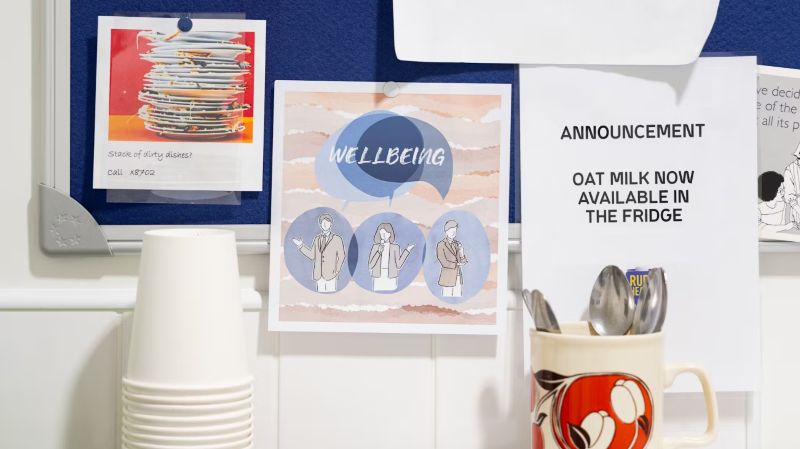
The jury’s still out, but preliminary research suggests that grateful people may have better sleep, healthier hearts, and fewer aches and pains.

By Dr. Summer Allen
Science writer and editor
Introduction
After 15 years of research, we know that gratitude is a key to psychological well-being. Gratitude can make people happier, improve their relationships, and potentially even counteract depression and suicidal thoughts. But might the benefits of gratitude go beyond that? Could gratitude be good for your physical health, too?

While some studies have associated gratitude with a whole slew of benefits—from fewer aches and pains to improved sleep to better cardiovascular health—others have found more mixed results. More research is needed before doctors start giving out prescriptions for gratitude, but there’s good reason to suspect that gratitude has positive ramifications for your body.
“Gratitude…can be an incredibly powerful and invigorating experience,” says researcher Jeff Huffman. “There is growing evidence that being grateful may not only bring good feelings. It could lead to better health.”
Are Grateful People Healthier?
People of all ages and various nationalities who have more grateful dispositions report fewer health complaints than their less grateful counterparts. In one study, more grateful participants reported fewer health problems (such as headaches, gastrointestinal problems, respiratory infections, and sleep disturbances); in another, they reported fewer physical symptoms (including headaches, dizziness, stomachaches, and runny noses). Seems pretty clear-cut, right?
Not necessarily. One big question is whether gratitude causes good health or whether good health causes gratitude—or perhaps something else makes us both grateful and healthy. Indeed, while these studies suggest that grateful people are healthier, they could also suggest that people in poorer health are less likely to feel grateful. To tease apart this relationship, researchers have begun to explore whether people who engage in gratitude activities benefit from improved health.
Results from the GGSC’s own Thnx4 project found that participants who kept an online gratitude journal for two weeks reported better physical health, including fewer headaches, less stomach pain, clearer skin, and reduced congestion. These results are consistent with a 2003 paper published by Robert Emmons and Michael McCullough. In that study, college students who wrote about things they were grateful for just once a week for ten weeks reported fewer physical symptoms (such as headaches, shortness of breath, sore muscles, and nausea) than students who wrote about daily events or hassles.
Other studies, however, have found no health benefits from gratitude. In one study of middle school students, those who completed a “counting blessings” activity for two weeks didn’t report better physical health than other groups. And, in their 2003 study, Emmons and McCullough found that college students who kept daily gratitude journals for two weeks (rather than ten) didn’t fare better in terms of health complaints. Emmons and McCullough also found that people with neuromuscular disease who kept a daily gratitude journal for three weeks reported the same amount of physical pain as people who just filled out basic daily surveys.
Do these mixed results mean that keeping a gratitude journal or writing gratitude letters won’t improve your health? Not necessarily. In the studies that failed to find health benefits, participants tried their gratitude activities for relatively short periods of time (two to three weeks). It could be that people who keep a gratitude journal for longer—say, multiple months—see stronger effects. Future studies will need to test this possibility.
Do Grateful People Sleep Better?
Sleep is vital for good health. Inadequate sleep puts strain on the body and increases your risk of developing obesity, diabetes, cardiovascular disease, and other conditions. But anyone who’s struggled with insomnia knows it’s not always so easy to get enough z’s. Perhaps surprisingly, studies suggest that boosting your gratitude might be a relatively easy way to improve your slumber.
People with heart failure and chronic pain who are more grateful report sleeping better, despite their condition, than less grateful patients. In a study of 401 people, 40 percent of whom had clinically impaired sleep, more grateful people reported falling asleep more quickly, sleeping longer, having better sleep quality, and staying awake more easily during the day. This study also found evidence that more grateful people sleep better because they have fewer negative thoughts and more positive ones at bedtime.
You don’t have to be a natural gratitude guru to get good sleep. Evidence suggests that just performing gratitude exercises can help. In one study, people with neuromuscular disease who kept a daily gratitude journal for three weeks reported sleeping significantly longer at night and feeling significantly more refreshed than people in the control group. And in a 2016 study, women who kept a gratitude journal for two weeks reported slightly better daily sleep quality compared to women who performed other tasks.
While the evidence that gratitude practices benefit sleep is still preliminary, it’s strong enough to suggest that those of us counting sheep may want to try counting blessings instead.
Is Gratitude good for your Heart?
Gratitude feels heartwarming, and a growing body of work suggests that gratitude might help keep our actual hearts healthy, too.
This line of research began in 1995, when a study found that people feeling appreciation (an emotion related to gratitude) have improved heart rate variability, an indicator of good heart health. In a more recent study, women who kept a gratitude journal where they wrote about “previously unappreciated people and things in their lives” for two weeks ended up with lower blood pressure than those who wrote about daily events. Together, these and other results suggest that feeling gratitude can be good for healthy hearts.
What about people who already have heart problems? Recent studies by Paul Mills, Laura Redwine, and colleagues have probed the relationship between gratitude and health in people with Stage B, asymptomatic heart failure—people whose hearts have suffered structural damage but who show no clear outward symptoms. In their study of 186 patients, more grateful people reported better sleep, less fatigue, less depression, more confidence in their ability to care for themselves, and lower levels of systemic inflammation (an immune response that can have negative effects on the body, including the cardiovascular system). Patients who did daily gratitude journaling for eight weeks also showed decreased markers of inflammation at the end of the experiment.
These results are especially important given that both depression and sleep problems can worsen heart failure, and they suggest that a gratitude journal might indeed be a good addition to the care provided to heart patients.
Gratitude may even help patients recover from a heart attack. In the Gratitude Research in Acute Coronary Events (GRACE) study by Jeff Huffman and colleagues, more optimistic and more grateful people showed signs of improved blood vessel function two weeks—though not six months—after being hospitalized for heart attacks, compared to less grateful patients. Unlike optimism, though, gratitude didn’t seem to improve patients’ physical activity levels or their likelihood of being readmitted to the hospital. A follow-up study found that people who were more grateful or optimistic two weeks after their heart attack were more likely to follow their doctors’ recommendations six months later.
A 2017 study by Neal Krause and colleagues may point to yet another way that gratitude supports heart health. This study found that more grateful people had significantly lower levels of a protein found in red blood cells called hemoglobin A1c (HbA1c). High HbA1c levels are a “biomarker” associated with an increased risk of heart failure and non-fatal heart attacks. HbA1C has also been implicated in poor blood sugar control in diabetes, as well as chronic kidney disease, a number of cancers, and overall risk of death. (This study does not tell us that being more grateful directly affects one’s HbA1C level; it is just as likely that more grateful people engage in other positive health activities that in turn lower their HbA1C.)
Studies focused on identifying biomarkers like this are likely to be an important part of the future of research on gratitude and health. For example, as part of the Greater Good Science Center’s Expanding the Science and Practice of Gratitude initiative, Naomi Eisenberger is testing how a gratitude intervention can change the expression of genes related to inflammation, and Wendy Mendes is examining how experiencing gratitude changes biomarkers related to stress, resilience, and aging.
How Might Gratitude Improve Health?
Research on the relationship between gratitude and physical health is still developing, but studies so far suggest that there may be a connection. At the very least, it appears that more grateful people report feeling healthier and sleeping better, and they may even have some physiological markers of better health.
This raises a clear question: How is it that gratitude might make people healthier? Besides helping them sleep, gratitude may lead people to engage in other behaviors that help keep them healthy, like eating well and not smoking. Indeed, more grateful people report having healthier lifestyles, more grateful heart attack patients adhere better to their doctors’ recommendations, and college students who count blessings weekly for 10 weeks exercise significantly more than those who do other writing activities.
But there are other possible mechanisms. Gratitude’s stress-buffering ability and known power to increase happiness and positive emotions may have downstream positive influences on health. And gratitude’s role in fostering and strengthening social connections may be just as important. A growing body of research strongly suggests that our relationships with others can have tangible health benefits.
Still, there is a lot we don’t yet know. As we speak, researchers are exploring how different types of gratitude might have different benefits, whether the target of your gratitude makes a difference, and how gratitude could impact your body in real time.
Additionally, we still need more evidence to determine whether or not particular gratitude activities can improve specific health outcomes, how long these improvements last, and whether characteristics such as age, gender, religion, or personality can influence gratitude’s effects on health. But the evidence is mounting that gratitude may well be one of the fundamental pillars of a healthy lifestyle.
Originally published by Greater Good Magazine, 03.05.2018, under a Creative Commons license.





